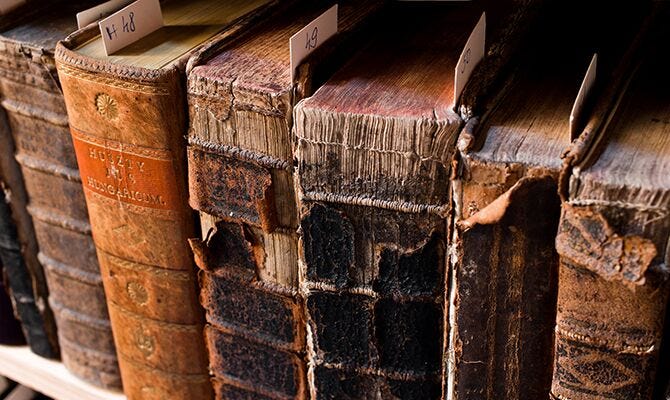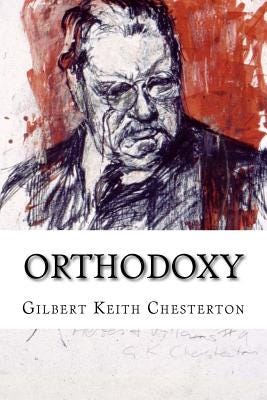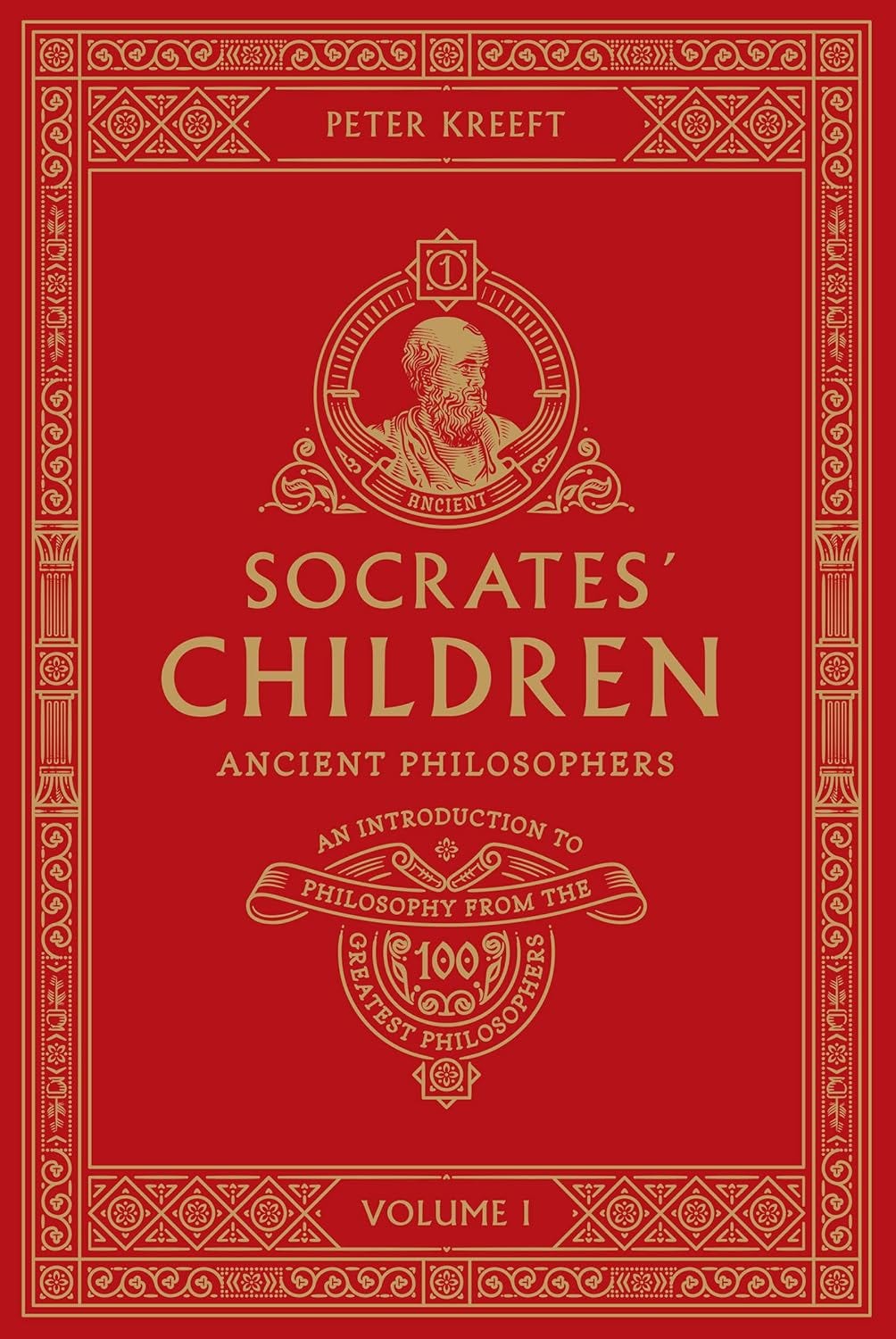How (I think) I Read
An Introduction
Hello, I’m so glad you’re here.
Before beginning to like what a person says, I usually have to learn to like the person.
Example: if a person were to say, “I hate Shakespeare,” it makes an enormous difference to me if the speaker is a stranger or a friend. If a stranger, my first impulse is: “There’s something wrong with her. We can’t be friends,” which is an especially snobbish reenactment of Mean Girls (“You can’t sit with us!”), and which I’m continually taking to the confessional… However, if the person is a friend, someone whose background and biases are familiar to me, I’ll instead reflect: “She has 7 kids and an engineering degree. She has strengths along different veins. Also, poor William was probably shoved down her throat in high school. She’s still a great person. We can still be friends.” Much more charitable towards the speaker, no instant relegation to the confession box for me.
Therefore, here, first, I would like to give you as clear and concise an idea of my approach to thinking and reading as I am able to give. If you know how I read, if you know my seven primary biases, perhaps it will provide a framework for fuller agreement or disagreement towards what I write.
Therefore, how do I read?
First and foremost, I read in order to understand Life better. I read fiction to learn about people; virtue and vice; Truth and deception; and the moments when the checkerboard becomes so small that black and white seem to blur into grey, but only seem. Last I was aware, this isn’t considered of primary importance in some academic circles. Therefore, I’m claiming it so you know it, and because, honestly, I don’t want to alter it, it’s one of the most enjoyable parts of reading for me. When I go to a book, I’m looking for insights that will help me become a better wife, mother, daughter, sister, and friend; that will help me become a saint.
(St. Anne Teaching the Virgin to Read - Philipp Veit - 1869)
Secondly, my second bias revealed itself above: I am Catholic, and I try every day to be more Catholic. I believe that Catholicism clarifies reality, that it helps a person see things the way they are. Therefore, I read longing to see enduring truths flowing underneath the narrative like a river that can’t be altered, even if we tried. I enjoy when these realities of life come out clearly and unambiguously, like in The Chronicles of Narnia or Anne of Green Gables. But I also love a good healthy wrestling match, like in The End of the Affair. A book certainly does not have to be overtly Catholic for me to enjoy it; however, if it seems to me that a book fails to be honest in its wrestling, I typically end a bit dissatisfied. I don’t need it to uphold Catholic moral teaching as the standard, but a novel with a protagonist who commits premeditated murder and fully gets away with it (i.e. is not condemned by the law, her own conscience, or the author…cough…cough…Where the Crawdads Sing), I simply can’t buy. The aforementioned example is not in keeping with reality; the author forced the character to become a poster-child for her own incongruous beliefs. But this is almost too blatant an example…and it leads into more thoughts on Good Good books, Good Bad books, Bad Good books, and Bad Bad books…and into thoughts on how the ending is crucial for determining the value of the entire book. But these footnotes need their own space, and I must press on.
Third, I’m biased towards old books.1 As Angelina Stanford likes to say (and I paraphrase), “I only read dead guys!” The test of time is my favorite test. If it’s old, I assume it’s good and I walk on trusting the ride. If it’s new, I have to fight the inclination to examine every bolt, screw, and strap, assuming I’ll find a multiplicity of errors that will derail the ride. Because of this bias, I am so grateful to Close Reads and Kelsie Hartley through Reading Revisited for bringing new books with living authors into my library.
Fourth, I care about the author. I’ve been a writer since I could dictate a story to my momma, and I can’t help but read books with the author in mind. I’m continually looking behind the curtain, wondering what the author is doing, trying to better understand great writers so I can be one too. I like when an author’s biography reveals more of the story (though I’m emphatically not here for a complete autobiographical and psychological reading of a fictional work). I like reading Orthodoxy and Manalive alongside each other. I like when an author’s prose informs his fiction.
Fifth, I care about context. Not only the author, but the author’s time and place help me enjoy the full richness of a work.
Sixth, I absolutely love connecting books to each other. Archetypal themes are fascinating to me. Echoes of plots or scenes from an older work into a newer one is what I’m here for. A friend of mine once playfully referred to this riffing off of previous works as a form of intelligent plagiarism. I love it.
Seventh and final bias, and assuredly a fault, I have to work hard to just enjoy the book. I come from engineering and science parents, people who love to view the world through equations and microscopes, research and thought. My younger siblings and I had parents who taught us to look for and eliminate error, and to discover cause and effect relationships2. My undergrad was at the Air Force Academy, a place of structure, order, no superfluity, and the need to justify every action and item under a multiplicity of rules. And I live now, in America, in a modern world, which values the utilitarian, which values things which are not ends in and of themselves, but means to an end. Therefore, I have a three-fold force working against my ability to remember that useless things are useful, that Art is superfluous, not utilitarian, and that for that reason it is essential. The unnecessary is necessary to be a Man. I have a threefold force urging me to explicate all the tiny things within the work (good and bad), while forgetting to enjoy story. C.S. Lewis has helped me the most in this effort towards enjoyment. In An Experiment in Criticism (or was it On Stories…?) he says (and I’m paraphrasing here) that we can’t truly give a work it’s best chance of appreciation if we’re reading for flaws. I remember getting the impression from him that I should trust the author and the work, and wait until the end to make a judgment call. I’m still working on this. When I succeed, it’s the difference between a white-knuckled-safety-bar-clutching-roller-coaster ride, and throwing one’s hands up so you feel like you’re flying.
A note before I conclude. I’ve named this publication “Anne’s Girl,” in reference to two women of that name. First, to St. Anne. The image of one saintly mother teaching a future saintly mother how to read, is my icon for the goal of the written word. May written words open our eyes to what truly is so that by truly seeing we may become ourselves. Second, to a bright-eyed, read-headed girl from Prince Edward Island who spelled her name with an “e.” I hold Anne of Green Gables as one of fiction’s most ordinary and influential saints. To paraphrase Heidi White, “she made me love goodness.” If I could emulate her childlike enthusiasm for life, I would be a saint myself. At each milestone in my life, at each bend in the road, I have thought of Anne, and she has helped me.
So, there it is y’all, as best as I can say it. This is how (I think) I read. When Thales of Miletus (a philosopher from 624-546BC) was asked, “What is most difficult?” He replied, “To know oneself.” And when asked what is easiest, he replied, “To give advice to others” (Peter Kreeft’s Socrates Children).
Therefore, upfront I have attempted what is most difficult (trying to see myself well enough to introduce myself), and from here on out I will attempt to do what is easier (wax lyrical about how stories will change the world). Thanks for hanging in there. I’m so glad you love reading too.
My masters is in 16th & 17th century British Literature. I chose these first modern centuries because in them I saw the germs of ideas which today have grown so large that they’re almost unseen and nearly always viewed as obvious, unquestionable, and “the way people always thought.” Therefore, to me, everything after the 16th century is modern.
This may be an intentional oversimplification, but that does not mean it’s misleading.






First of all, love the name (and I have the child named Anne after those two people too so obviously I’m here for it)!
Second, this makes me want to examine my own reading habits and biases…what a great prompt!
Third, can’t wait to follow along with what is next!